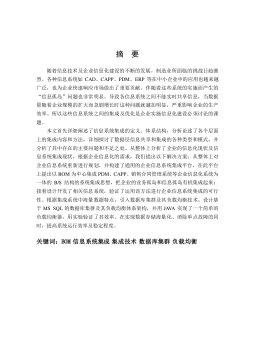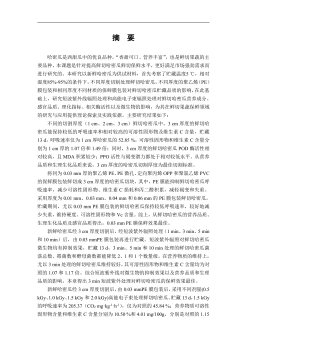上海金融发展与经济增长的关系研究
上海金融发展与经济增长的关系研究摘要金融发展与经济增长的关系是经济学的一个重要课题。本文试图将日益成熟、完善的金融发展理论应用到上海的实际情况上来,希望通过对上海金融发展与经济增长关系的实证研究,从而在一定程度上了解全国金融发展与经济发展关系的全貌,同时为构造具有地方特色的金融体系提供理论指导,推动上海金融业和经济的持续、健康发展。本文首先系统地阐述了西方国家金融发展理论及相关实证研究,以及中国学者相关的理论和实证研究,吸收符合我国现实的理论分析内容和结论,作为文章研究的基础和起点。其次,对上海经济和金融发展的历程和现状进行了回顾和分析。改革开放以来,上海已经发展成为经济规模大、产业能级高、资...
相关推荐
-
七年级数学下册(易错30题专练)(沪教版)-第13章 相交线 平行线(原卷版)VIP免费
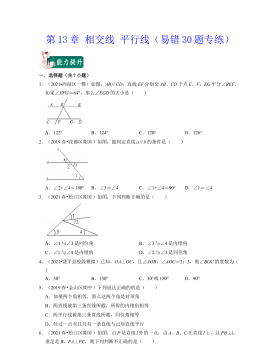
 2024-10-14 41
2024-10-14 41 -
七年级数学下册(易错30题专练)(沪教版)-第13章 相交线 平行线(解析版)VIP免费

 2024-10-14 52
2024-10-14 52 -
七年级数学下册(易错30题专练)(沪教版)-第12章 实数(原卷版)VIP免费
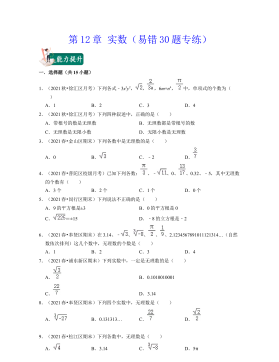
 2024-10-14 38
2024-10-14 38 -
七年级数学下册(易错30题专练)(沪教版)-第12章 实数(解析版)VIP免费
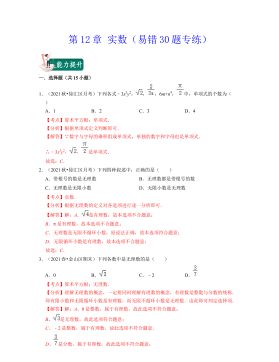
 2024-10-14 30
2024-10-14 30 -
七年级数学下册(压轴30题专练)(沪教版)-第15章平面直角坐标系(原卷版)VIP免费

 2024-10-14 46
2024-10-14 46 -
七年级数学下册(压轴30题专练)(沪教版)-第15章平面直角坐标系(解析版)VIP免费

 2024-10-14 44
2024-10-14 44 -
七年级数学下册(压轴30题专练)(沪教版)-第14章三角形(原卷版)VIP免费

 2024-10-14 38
2024-10-14 38 -
七年级数学下册(压轴30题专练)(沪教版)-第14章三角形(解析版)VIP免费
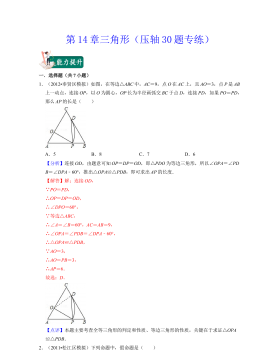
 2024-10-14 46
2024-10-14 46 -
七年级数学下册(压轴30题专练)(沪教版)-第13章 相交线 平行线(原卷版)VIP免费
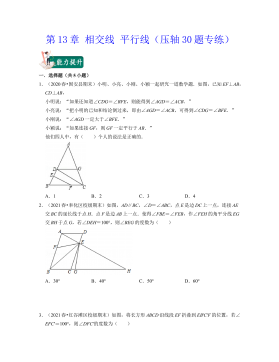
 2024-10-14 44
2024-10-14 44 -
七年级数学下册(压轴30题专练)(沪教版)-第13章 相交线 平行线(解析版)VIP免费

 2024-10-14 44
2024-10-14 44
相关内容
-

七年级数学下册(压轴30题专练)(沪教版)-第15章平面直角坐标系(解析版)
分类:中小学教育资料
时间:2024-10-14
标签:无
格式:DOCX
价格:15 积分
-

七年级数学下册(压轴30题专练)(沪教版)-第14章三角形(原卷版)
分类:中小学教育资料
时间:2024-10-14
标签:无
格式:DOCX
价格:15 积分
-

七年级数学下册(压轴30题专练)(沪教版)-第14章三角形(解析版)
分类:中小学教育资料
时间:2024-10-14
标签:无
格式:DOCX
价格:15 积分
-

七年级数学下册(压轴30题专练)(沪教版)-第13章 相交线 平行线(原卷版)
分类:中小学教育资料
时间:2024-10-14
标签:无
格式:DOCX
价格:15 积分
-

七年级数学下册(压轴30题专练)(沪教版)-第13章 相交线 平行线(解析版)
分类:中小学教育资料
时间:2024-10-14
标签:无
格式:DOCX
价格:15 积分


